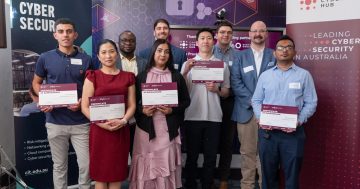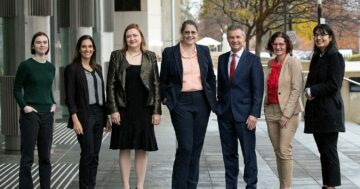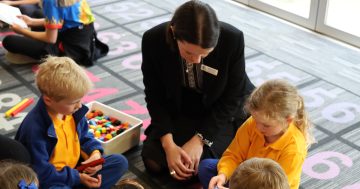
There’s a critical shortage of STEM students. Photo: Supplied.
It was no shock when the ACT Government added information and computer technology managers to its list of occupations suffering a critical skills shortage earlier this year.
The national STEM skills shortage is something Commonwealth Chief Scientist Dr Cathy Foley took to the recent Jobs Summit, describing science as “humanity’s superpower”.
Computing is the ‘superpower’ that is vital to the future of Canberra.
Students coming from overseas to study in Australia will always be an important source of STEM talent and the ACT economy needs university students to fill a host of jobs during study and after graduation, but what if the ACT was a self-sustaining source of STEM graduates with an equally sharp focus on both universities and the vocational education and training system?
There are good reasons to think it can be.
Its information and computing technology sector hold the key.
The nation’s capital is a smart place where four-in-ten Canberrans have Bachelor’s degrees or better – almost twice the national average.
Its five universities are world-class and the Canberra Institute of Technology, a multi-campus VET college, caters to 19,000 students annually, including 600 from overseas.
Terms such as ‘skills crisis’ and ‘war for talent’ might be top of the pops in the hospitality sector right now but are not new to the IT sector.
Companies like mine have recognised that they must collaborate with governments and training providers and invest in staff whose skills will be in heavy future demand.
It has been developing solutions to attract, train and retain staff in an environment where rapid change in skills is needed as technology evolves and adapts.
There is an underlying need in the ACT for well-skilled employees who understand legacy technologies but can adapt to new and evolving IT requirements.
My company started doing this with the TAFE system in Tasmania in 2015, creating paths for students and giving them hands-on, real-world experience with our customers. Eighty per cent of our employees in the Apple Isle are now home-grown graduates.
We took the strategy to South Australia where we collaborated with TAFE SA on certificate and diploma-level work placements and traineeships. The collaboration provides industry-recognised certifications, mentoring and on-the-job experience and more than 85 per cent of graduates are employed within three months.
Extending the approach to universities results in students developing next-level skills with co-designed degrees as they work in client environments. They then become highly adaptable and can respond to emerging technology and changing customer needs.
Of the 70 graduates who came through our own programs a few years ago, we offered 97 per cent full-time employment. Three years later, eight-in-ten are still with us.
More ICT companies are investing in tools and frameworks that assist with internal employee mobility and give talented people the satisfaction of growing a career in-house.
By anticipating skill demand, Canberra’s ICT companies can ensure employees are trained and ready for the next wave of technological change without having to constantly go back to the market.
Natasha Copley is APAC Chief of Staff for global system integrator DXC Technology.





















